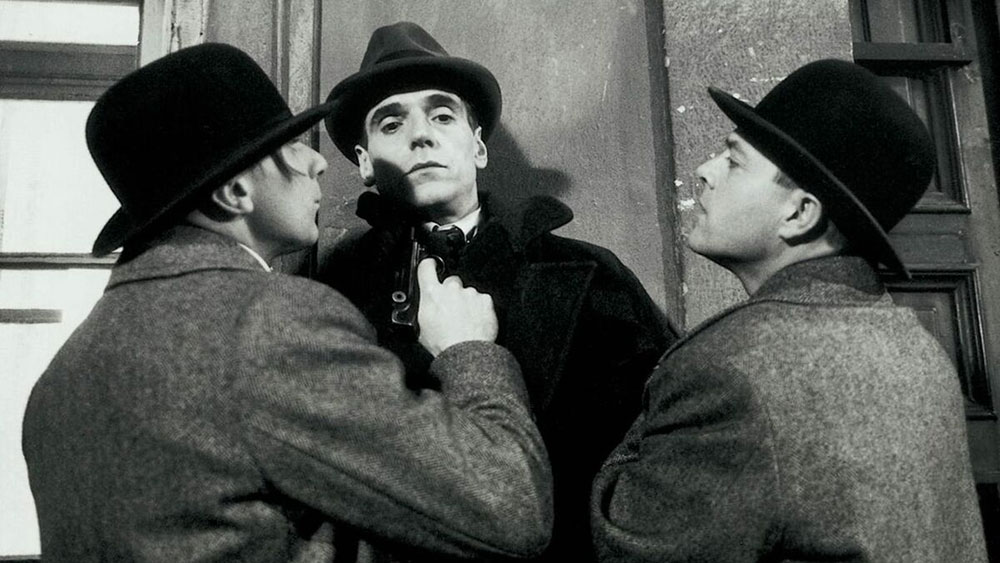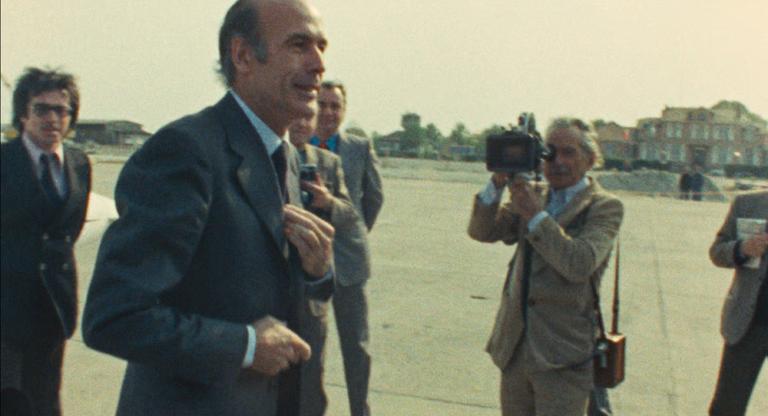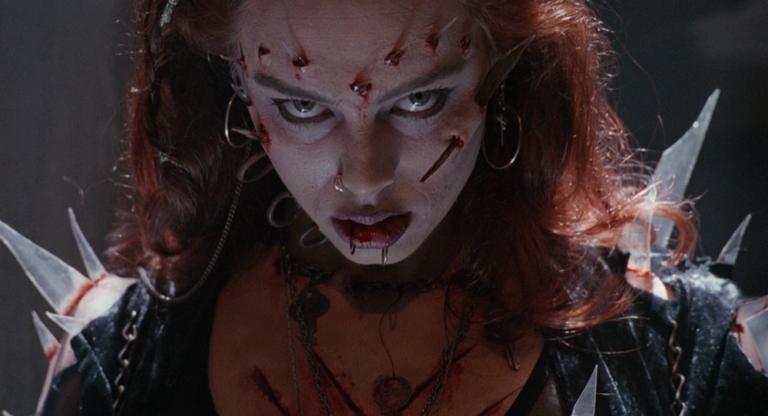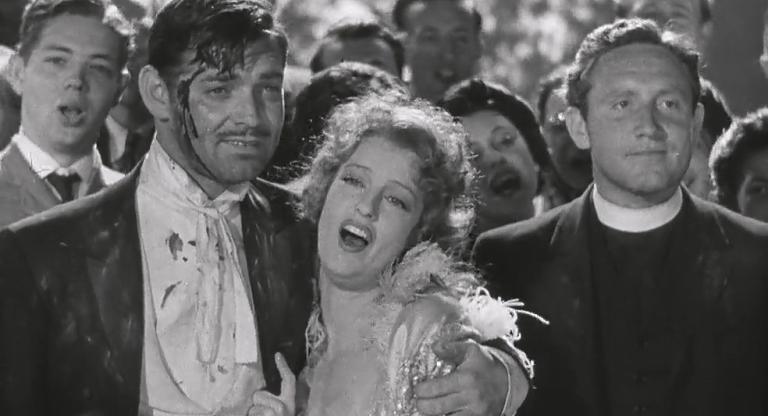On Thursday, November 9, Steven Soderbergh’s latest premiered for US audiences, again. His 1991 flop Kafka, the follow-up to his Palme d’Or–winning debut Sex, Lies, and Videotape (1989), has returned twenty minutes and an audio track shorter as “a silent film with sound and music,” now titled Mr. Kneff, for a one-night-only showing at Nitehawk Prospect Park. Having previously shown only at TIFF in 2021, it is not expected to show widely.
The apparent reason for the digs was the Nitehawk bar: the screening was presented by Soderbergh’s boutique brandy label, Singani63. As the brand lore tells it, while filming his 2008 beret biopic Che, Soderbergh “became the star of his OWN historical epic–with SINGANI as the object of his obsession!” Soderbergh says, “My casting director on Che gave me a bottle to celebrate the start of filming. I said ‘Well, let’s open it up!’ ...and then spent the next six months drinking it.”
Nitehawk served complimentary cocktails before the movie, and at the door, select guests received special Singani63 pins. Soderbergh arrived about an hour early and held court. Occasionally, I enjoyed snippets of his conversation. At one point he said out loud to no one in particular, “I don’t think the streaming model works!” Later, he expertly fielded a question about the decision to store Singani63 in casks made of non-Bolivian wood, musing “If only there was a make that was specific...” before trailing off into intense, brooding thought.
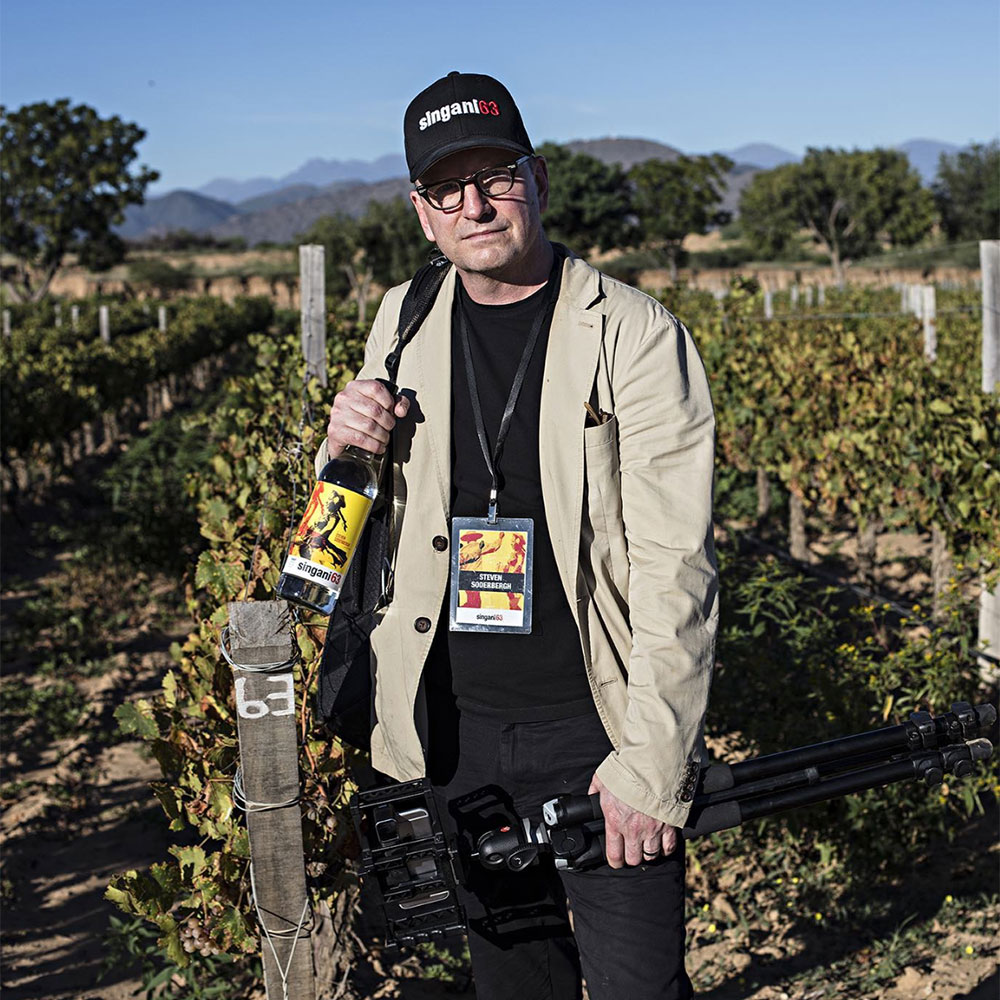
On the Nitehawk website, there was a sole sentence devoted to a plot summary for Mr. Kneff. It read: “A writer guy in 1919 Prague uses his dead-end job as inspiration for his fantastical fiction.” This is less self-effacement than an honest reappraisal of the original film, which was neither conversant with Kafka’s works nor rooted in knowledge of his life. It is a sort of dust jacket tableau vivant, imagining who Kafka might have been from his author photo and what his books might be from their titles.
Drawing imagistically on Kafka’s unfinished novel The Castle, the movie inexplicably ignores the real-life event that inspired the book: Kafka’s treatment for tuberculosis at the snowy mountain resort of Spindlermühle. Soderbergh instead places said bureaucratic fortress in Prague, a choice that might have been justified if paired with historical details about Kafka’s life in the city. Instead, the autobiography informing Special K’s writing is all made up, superficially bulletpointing things like his fraught correspondence with Felice Bauer, his intense artistic friendships, and his Jewishness, while introducing lots of nonsense like a revolutionary cadre that wants Kafka to go Sandinista on that castle.
Kafka was a grasping perfectionist, publishing little in his lifetime and, in death, urging his executor to destroy the majority of his oeuvre. In contrast, Soderbergh is generously prolific: Since landing on his mature style with Out of Sight (1998), he has directed 28 films and several seasons of television, often also serving as cinematographer and editor. Few of them are particularly Kafkaesque (compare, for example, Erin Brockovich to The Trial), many are very good, and none are the work of a perfectionist who can’t let go. So what drew him to the script for Kafka? In the Q&A hosted by Rolling Stone’s David Fear, Soderbergh brushed off the selection as simply part of a hardheaded attempt to “annihilate Sex, Lies,” as “running in the opposite direction,” recalling that he “continued to punish people for another four films.” This seems unlikely.
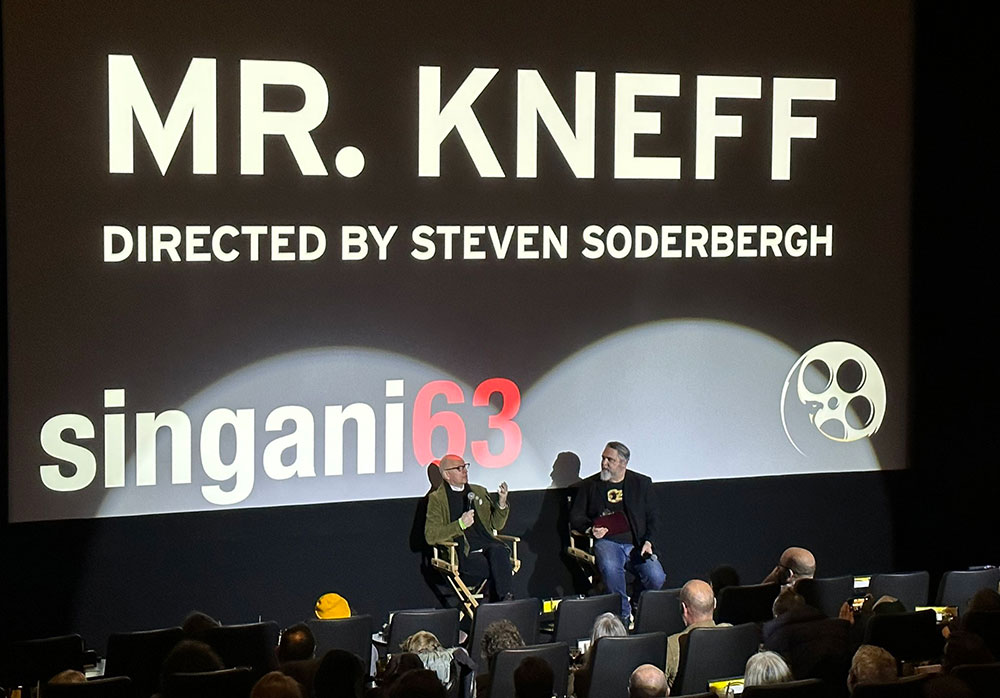
My hunch is that Soderbergh the writer, who penned Sex, Lies and Videotape and three of the punishing films (King of the Hill, 1993; The Underneath, 1995; and Schizopolis, 1996), and whose critical and commercial re-emergence came at the expense of him essentially quitting screenwriting forever (since 1998, he has only written one of his 28 films, the 2002 George Clooney–led remake of Tarkovsky’s Solaris), may have more in common with the tortured Bohemian than he would like to admit. Perhaps the prolific output has been a way of hiding the grasping perfectionist within. Maybe the problem with Kafka isn’t that it’s not enough about Kafka, but that it’s too much about Soderbergh.
If that’s the case, then Soderbergh isn’t ready to admit it either: This is not a prolix meditation on the writer’s life. Instead, Mr. Kneff is fun, short, and gleefully frivolous. The new cut has removed all mention of Kafka (including his name, which is now Mr. Kneff, but not including several puerile references to his work including a woman named Rossman, after the guileless hero of Amerika, and a man who compliments “The Penal Colony”), and all dialogue. What we now have is a brightly subtitled silent film about a writer who blows up a castle (the ending is an homage to Orson Welles’s similarly interpretive finale to The Trial, 1962). Soderbergh, who was under the influence of “a bag of weed” while editing, has scored it with jazzy B-sides from the Ocean’s movies and retinted some scenes to delineate the contrast between Kneff’s fertile imagination and drab surroundings. Twenty punishing minutes are gone, too. Soderbergh says, “It’s not more commercial, but more coherent.” He’s refashioned it from a failed intellectual venture into something hip and casual. One scene is set to an all-strings cover of Metallica’s “Enter Sandman,” a lovely song and one that might have spoken to Kafka’s deep well of religious angst.
With its shortcomings hidden, many of the original’s strengths—its set design, the period costumes, Irons’s expressive performance, and Soderbergh’s direction—are easier to appreciate. Mr. Kneff is still no masterpiece but, as Soderbergh put it in the Q&A, “It makes me less sad than the original.” He hopes people who seek out Kafka will, at least, watch Mr. Kneff first—or, better, watch both with a big bottle of Singani63 and a bag of weed.
